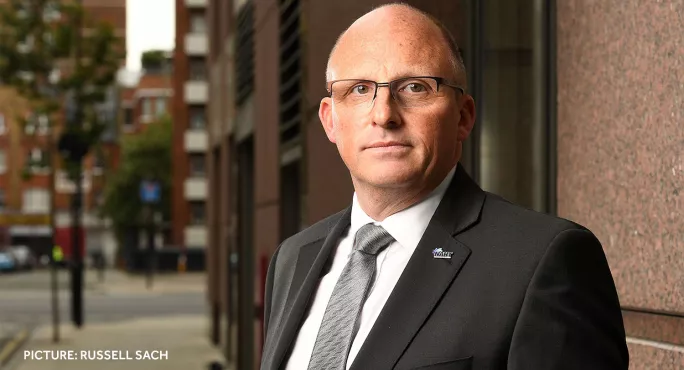School leaders’ union to launch formal ballot on striking over pay

A school leaders’ union is to ballot its members over whether to go on strike over pay and funding.
NAHT has announced today that it is to move to a formal industrial action ballot following a consultation with its headteacher and school-leader members.
Members will be asked two questions on whether they back strike action and whether they support action short of a strike.
General secretary Paul Whiteman said today that he had written to the secretary of state for education Kit Malthouse to inform him that the union and the department are “now officially in dispute”.
He added that the “future of education was on the line”.
In a consultative ballot, 84 per cent of respondents indicated they wanted to be balloted on taking action short of strike, should a suitable agreement on pay and funding not be reached.
And just over half of the respondents (55 per cent) indicated they wanted to be balloted on taking strike action.
NAHT said 64 per cent of its membership responded to a survey between Tuesday 27 September and Friday 14 October.
If it got the same level of response to its formal ballot, the NAHT would meet the threshold for taking industrial action.
It is the union’s first ballot on pay in its 125-year history.
It follows the NEU teaching union and the NASUWT teaching union who have both announced intentions to ballot members over industrial action over teacher pay.
The NAHT school leaders’ union launched a consultation with its members earlier this year to gauge their views on pay and funding.
- NASUWT: Most parents ‘would back’ teacher industrial action
- Latest: Teaching unions move closer to strike action as ballots announced
- NEU: Sixth-form teachers to vote on strike action over pay
- Teacher pay: Half of school leaders back union strike action vote
Speaking at the Trade Union Congress (TUC) conference in Brighton today, Mr Whiteman said that school leaders have told him ”they cannot continue to run their schools in the current circumstances”.
“The neglect of pay in education and the funding to support it is now eroding the quality of education that our members can provide.”
Mr Whiteman said that schools were “caught in a vicious cycle”.
“Insufficient pay has contributed to a recruitment and retention crisis. And the failure to fund even the insufficient award this year means that heartbreaking cuts to services will have to be made.”
He added that “fewer people and fewer services will lead to an erosion of educational quality”.
“This is not a situation the dedicated and caring professionals I represent can put up with any longer. Their primary concern is the education and wellbeing of the pupils, and staff in their schools. They are telling me very clearly that they feel unable to continue to operate under these circumstances.
“No school leader would ever take any industrial action lightly, but they are telling me they feel compelled to fight for the futures of the children and young people in their care. It is no exaggeration to say that the future of education is on the line.”
“I have today written to the secretary of state for education to inform him that we are now officially in dispute. I can only urge him and the government to listen and take urgent action.
“School leaders will do everything in their power to avoid disruption to pupils. But they are clear that to do nothing will only ensure that nothing changes. My appeal to the government is to engage with us and find a solution that serves the needs of the profession and in turn the ambition of young people.”
Education unions threaten action
Last week, the NASUWT teaching union said it would ballot its members on industrial action over pay, with papers due to be issued to members from 27 October and the ballot closing on 9 January.
And last Friday, the NEU teaching union, England’s biggest teaching union, said that it would announce a timetable for a ballot after a preliminary ballot of teacher members and support staff showed strong support for taking action over pay.
At the TUC conference today, Kevin Courtney, joint general secretary of the NEU, announced that the formal ballot over strike action announced last week would be sent out on 28 October.
Earlier this month, the Association of School and College Leaders released the results of its survey of school leaders, which asked whether the union should run an indicative ballot for action short of strike action and an indicative ballot on strike action.
A Department for Education spokesperson said: “It is incredibly disappointing that some unions are threatening industrial action in schools. Strike action will damage children’s education and disrupt parents’ lives. Given the impact of the pandemic on children, it’s more important than ever that strike action is avoided.
“We have confirmed the highest pay awards for teachers in a generation - 8.9 percent for new teachers and five percent for experienced teachers and leaders - recognising their dedication and hard work.”
You need a Tes subscription to read this article
Subscribe now to read this article and get other subscriber-only content:
- Unlimited access to all Tes magazine content
- Exclusive subscriber-only stories
- Award-winning email newsletters
Already a subscriber? Log in
You need a subscription to read this article
Subscribe now to read this article and get other subscriber-only content, including:
- Unlimited access to all Tes magazine content
- Exclusive subscriber-only stories
- Award-winning email newsletters
topics in this article



